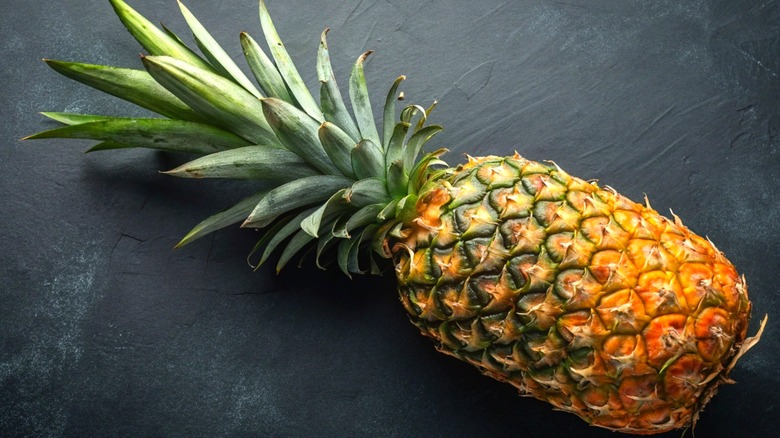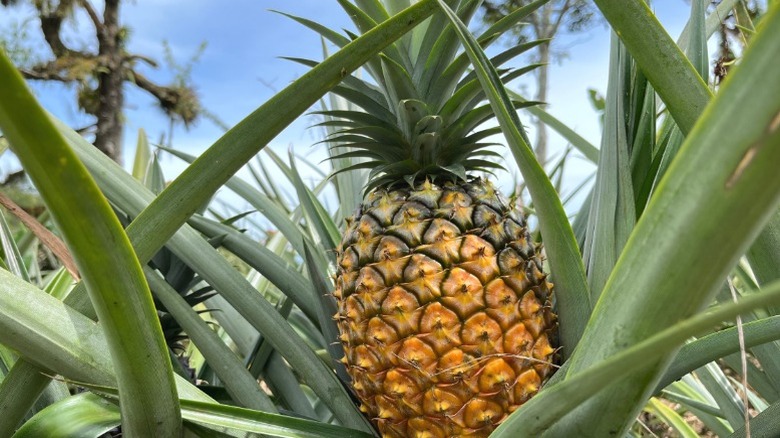How The Pineapple Got Such A Strange Name
You likely know a few things about the humble pineapple — it's a juicy tropical fruit, SpongeBob Squarepants lives in one, and you shouldn't put any on pizza lest you incur the wrath of Gordon Ramsay. But you probably don't know exactly why it's called a pineapple. It doesn't come from a pine tree, and it sure as heck doesn't look like an apple. So what gives? Well, the word "pineapple" didn't originally refer to the tropical fruit, which had its own name.
Something you have to understand is that back in the day, people called pretty much any fleshy fruit an apple, and some of those etymologies linger today. The word "pomegranate," for instance, translates out to "grainy apple," while the French still call the potato a "pomme de terre" or "earth apple." As for the pineapple, the word originally referred not to the fruit we know today, but to pine cones — which are, after all, the fruit of the pine tree.
Pineapples were originally called ananas
When the English explorer John Smith (yes, the same guy from the story of Pocahontas) encountered the pineapple in 1624, he drew a comparison between it and the spiny fruit of the pine tree. But in truth, others had beaten him to the punch: by this point, the fruit we call the pineapple today already had a name, "ananas", which had been used in English before. It makes up the first half of the pineapple's scientific name, "ananas comosus," and in most languages aside from English (or Spanish, which calls it a "piña"), the term for the pineapple is "ananas."
But in English, the word "pineapple" stuck, and it became an object of exotic fascination, beloved by the aristocracy primarily as decoration. In fact, a nobleman in Scotland had a building shaped like a pineapple constructed in Dunmore, where it still stands to this day. It wasn't until James Dole established a pineapple plantation in Hawaii in 1900 that it became a widely-distributed fruit for the masses, placed in sandwiches with mayo in the South and on ham toasties in Germany as "Toast Hawaii".

